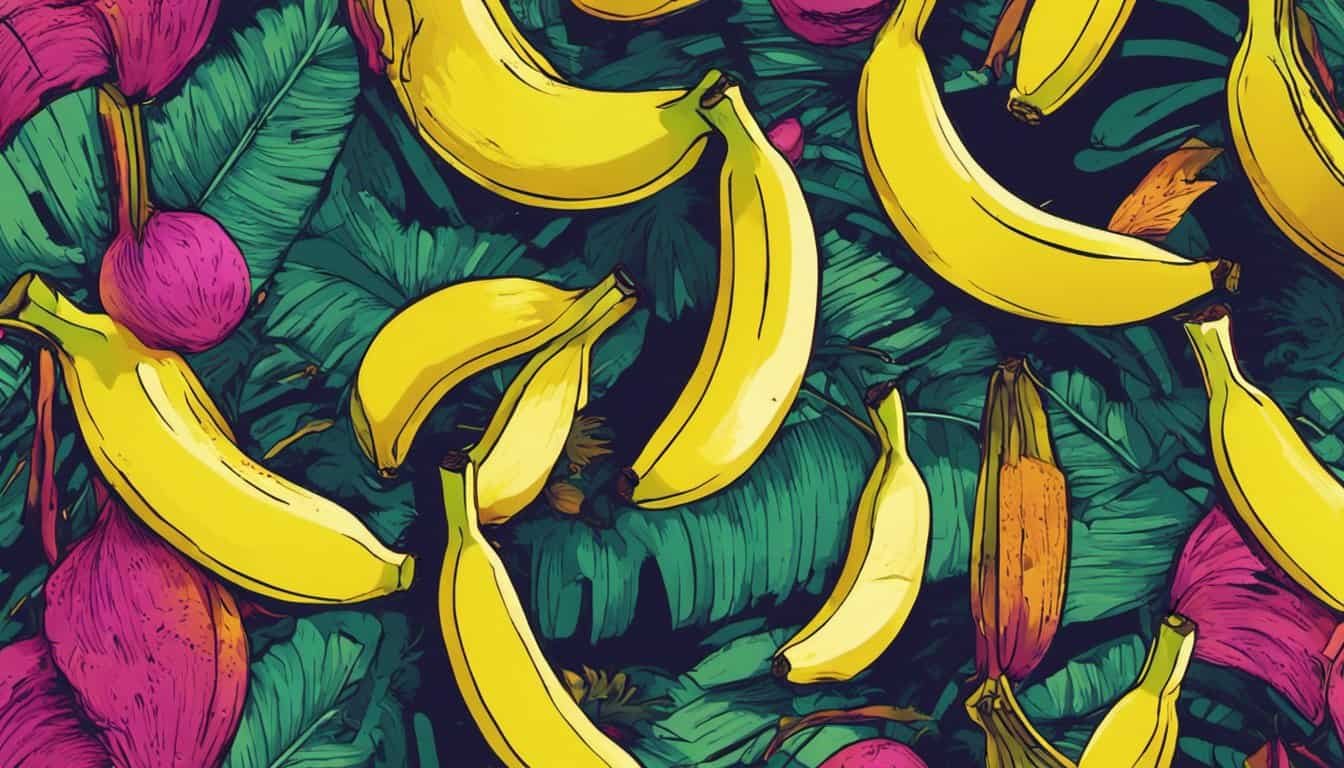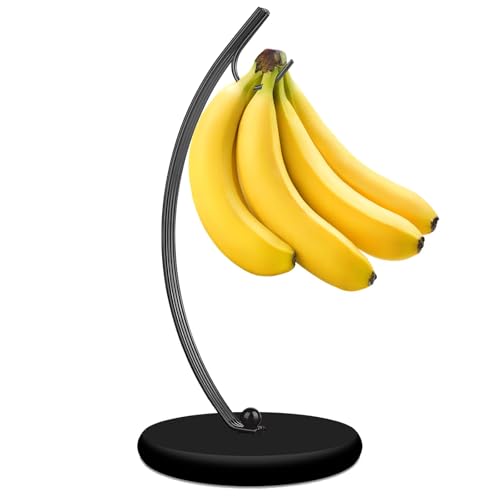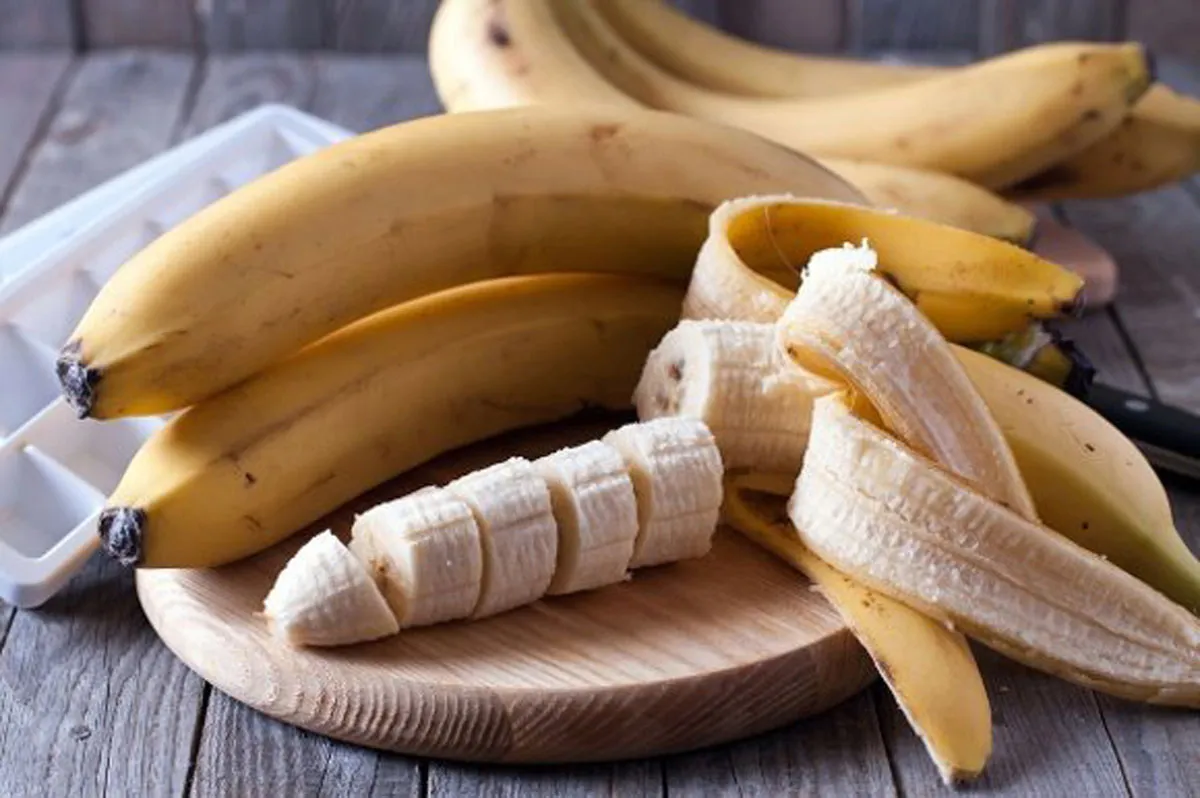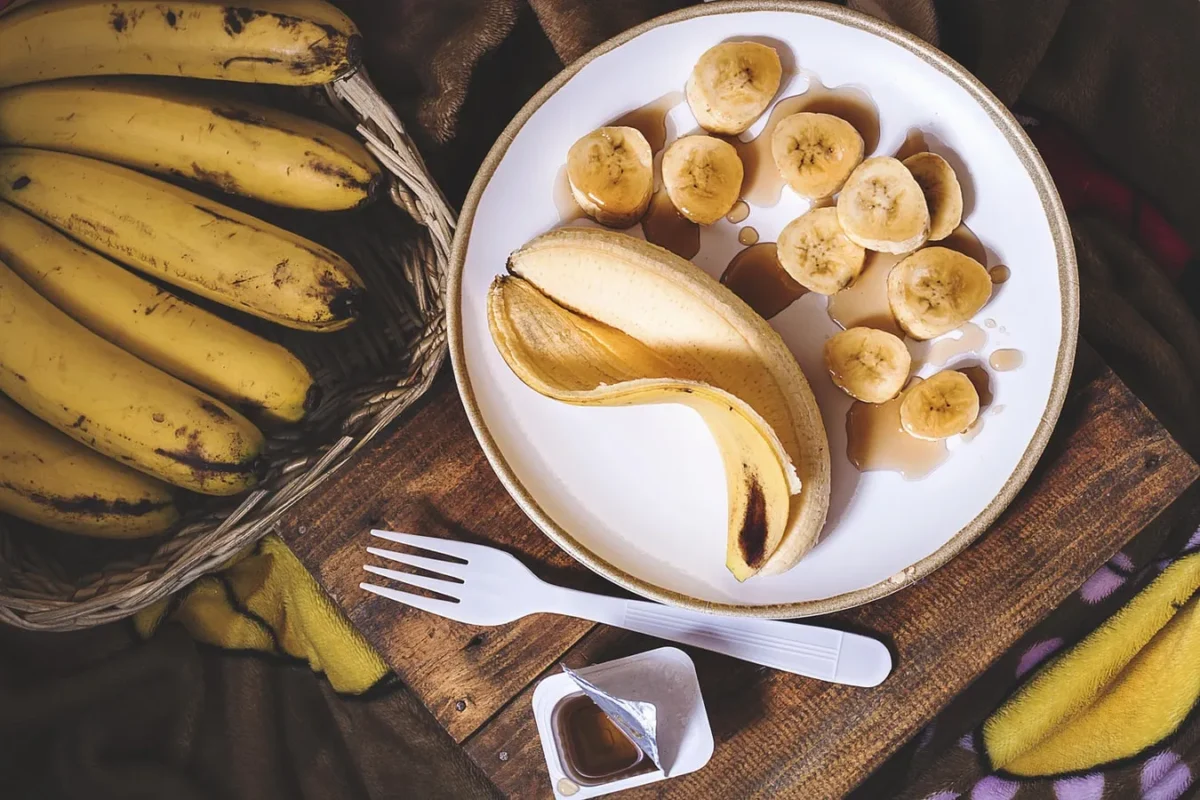All You Need to Know About Bananas: Nutritional Value, Cooking Tips and More
Bananas are one of the most common fruits in the world, but how much do we really know about them? From their nutritional value to their cultural significance, there is much to explore when it comes to bananas. In this article, we will delve into the different aspects of bananas, including what they are, their nutritional value, how they can be used in cooking and baking, the unique characteristics of different types of bananas, and some interesting banana facts. Whether you are a foodie, a health enthusiast or just curious about this popular fruit, keep reading to learn more about bananas.
What is a banana?
While bananas are often thought of as a simple and straightforward fruit, the truth is that there is much more to this tropical treat than meets the eye.
At its core, a banana is a type of fruit that grows on plants in the genus Musa. These plants are native to tropical regions such as Southeast Asia and Australia, but today they can be found growing all over the world.

Bananas come in many different varieties, each with their own unique flavor profile and texture. Some of the most popular types include Cavendish bananas (known for their mild flavor), plantains (which are typically used for cooking), and red bananas (which have a sweeter taste than traditional yellow bananas).
One of the most interesting things about bananas is their nutritional content. They are rich in vitamins and minerals such as potassium, vitamin C, and vitamin B6. Additionally, they contain high levels of fiber which makes them an excellent choice for those looking to maintain good digestive health.
Despite their many benefits, however, it’s important to note that not all bananas are created equal. Some varieties may be higher in sugar or calories than others, so it’s important to choose wisely when selecting your fruits.
Overall though, there’s no denying that bananas make an excellent addition to any healthy diet – whether you’re looking for a quick snack on-the-go or trying to incorporate more nutrient-rich foods into your meals. So next time you bite into one of these delicious fruits, take a moment to appreciate just how much there is to learn about this seemingly simple food!
The nutritional value of bananas is high.
Bananas, the curvaceous fruit with a yellow peel, are often touted as a healthy snack option. But what exactly makes them so nutritious?
Firstly, bananas are rich in potassium. This essential mineral is important for maintaining proper fluid balance in the body and regulating blood pressure. In fact, one medium-sized banana contains about 9% of your daily recommended intake of potassium.
But that’s not all – bananas also contain fiber, which can aid in digestion and help you feel full longer. Additionally, they are a good source of vitamins C and B6.
Interestingly enough, the nutritional value of bananas can vary depending on their ripeness. As bananas ripen, their starches turn into simple sugars such as fructose and glucose which means that ripe bananas have more sugar than unripe ones.
Overall though, it’s clear that bananas offer many health benefits to those who consume them regularly. So next time you’re looking for a nutritious snack option or an ingredient to add to your favorite smoothie recipe – reach for a banana!
How can bananas be used in cooking and baking?
Bananas are not just a healthy and delicious snack, but also a versatile ingredient in cooking and baking. They can add natural sweetness, moisture, and texture to various dishes with their mild flavor.

In baking, mashed bananas can replace eggs or butter in recipes for a healthier twist. For instance, banana bread is a classic recipe that uses ripe bananas as the main ingredient. By combining them with flour, sugar, and other ingredients like nuts or chocolate chips, you can create a moist and flavorful cake that is perfect for breakfast or dessert.
Bananas are also great for making smoothies or milkshakes. You can blend them with yogurt or milk and other fruits like strawberries or blueberries to create a refreshing drink that is packed with nutrients.
But bananas are not limited to sweet dishes only. They can also be used in savory recipes like curries or stews. For example, sliced bananas go well with chicken curry as they add sweetness and balance out the spices.
Moreover, you can use banana peels in cooking too! They contain antioxidants and nutrients that make them valuable ingredients for certain recipes like chutneys or pickles.
In conclusion, bananas offer endless possibilities when it comes to cooking and baking. From sweet treats to savory meals, they are an affordable ingredient that adds natural goodness to any dish. So next time you have ripe bananas lying around your kitchen counter – think outside the box!
Different types of bananas and their unique characteristics.
Bananas are one of the most popular fruits in the world, but did you know that there are different types of bananas with unique characteristics? Let’s take a closer look at these varieties and what makes them special.

« how to know if red banana is ripe
can we eat banana and mango together »
Firstly, there’s the Cavendish banana, which is the most commonly consumed type. It has a mild and sweet flavor with a creamy texture. This banana is perfect for eating raw or adding to smoothies.
Next up is the plantain banana. Unlike other varieties, it’s not typically eaten raw due to its starchy texture and slightly bitter taste. Instead, it’s usually cooked or fried in dishes like plantain chips or as a savory side dish.
For those looking for something more exotic, there’s the red banana – also known as “Red Dacca.” This type of banana has a reddish-purple skin and flesh that’s sweeter than traditional yellow bananas. It’s often used in baking or eaten on its own as a snack.
Another unique variety is the Lady Finger Banana (also known as “Baby Bananas”). These small bananas have a delicate flavor with hints of honey and vanilla. They’re perfect for snacking on their own or adding to fruit salads.
Lastly, let’s not forget about blue java bananas – also known as “Ice Cream Bananas.” These unique fruits have an ice cream-like texture when ripe and can be eaten raw just like any other kind of banana!
In conclusion, each type of banana offers its own distinctive qualities that make them stand out from one another. Whether you prefer sweet or savory snacks, there’s no shortage of delicious options when it comes to this versatile fruit!
Interesting facts about bananas and their cultural significance.
Bananas are one of the most popular fruits in the world, but did you know that they are also steeped in cultural significance? From ancient myths to modern-day celebrations, bananas have played an important role in human history.
In many cultures, bananas symbolize prosperity and fertility. In Hindu mythology, the god Vishnu is said to have planted a banana tree during creation. In some African traditions, bananas are given as a gift to newlyweds as a symbol of their future prosperity.
Bananas also hold religious significance for some people. In Japan, Buddhist temples use banana leaves during memorial services because they believe that the leaves help guide spirits on their journey to the afterlife. In some South American countries, bananas are used in spiritual rituals as an offering to deities.

But it’s not just cultural significance that makes bananas interesting – there are also plenty of fun facts about this fruit. Did you know that all modern-day bananas descend from two wild species that were cultivated by humans thousands of years ago? Or that there is a type of banana called “Red Banana” which has reddish-purple skin and flesh?
Bananas also have unique health benefits – they’re high in potassium which can help regulate blood pressure and support heart health. And if you’re feeling down or stressed out, eating a banana can actually boost your mood thanks to its levels of tryptophan and vitamin B6.
So next time you peel open a yellow bunch of bananas or spot someone wearing a banana costume at your local parade – remember all the fascinating cultural significance and interesting facts behind this beloved fruit.
Check out our other articles to find out even more about banana.
Bananas have many unique qualities that make them a great fruit to explore in more detail. From the nutritional value they provide to their diverse flavors and cultural significance, bananas are an incredibly versatile ingredient that can be used in all sorts of recipes. We hope this article has helped you get a better understanding of what makes bananas so special. Check out our other articles to find out even more about banana!

















